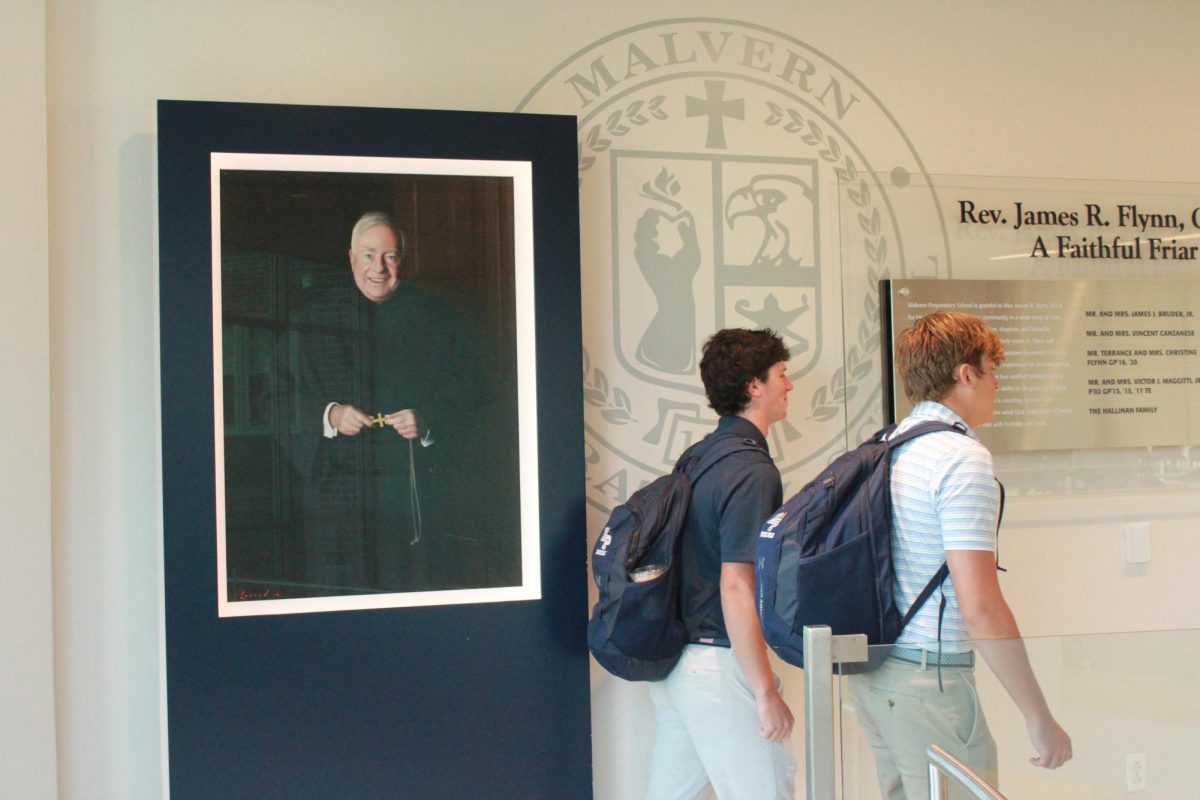AP exams are in full swing at the close of the year. Some Malvern students are focusing hard to get good scores, but others have no reason to care at all.
For some Malvern students, taking Advanced Placement (AP) classes in high school can free up their college curriculum if they score high enough on the AP exam. For others, AP classes may not provide the benefit they thought it would.
AP classes are college-level courses that give students an opportunity to earn college credit while in high school by taking the AP exam at the end of the year.
Gaining college credit means that the college can exempt a student from classes relating to the AP subject, which many colleges do if the student has a score that meets the college’s criteria.
This means that students can graduate earlier by being exempt from some freshman year classes. They can also save money by not having to take the extra class, have more flexibility in their course selection, and be placed in more advanced classes.
The problem is that some colleges do not allow students to place out of classes or even be placed higher in the curriculum from their AP tests, according to Marketplace.org. This is affecting students in the Malvern community.
Head of the Upper School Mr. Ron Algeo has heard about this problem from students and their families. He said that accepting APs depends on the course of study they are taking as well as the school.
When senior Will Shafer was admitted to the University of Pennsylvania, he only received credit for only four AP classes out of the nine AP tests that he took at Malvern.
Shafer noted that Penn’s policy is a strict one, which accepts little AP credit. For the subjects they do accept, Shafer said that Penn wants the maximum score of 5 on the test.
Since he was already admitted to Penn, Shafer knew going into most of AP tests this year that his score did not matter since no credit would be allotted anyway. He also was frustrated with the fact that he had to pay the fees for the test because it is mandated by Malvern to do so.
“It is definitely something that needs changing, because I have spent over $500 on tests that do not matter to me at all,” Shafer said.
Shafer said that several of his classmates experienced this as well. However, Head of College Counseling Mr. Ian Harkness said that colleges not accepting AP credit is not as big of a trend among all universities as some may think.
“I don’t know if it is a big trend that colleges are going away from it,” Harkness said. “I think we are feeling it more here because our guys are choosing to enroll in some top universities.”
Harkness said that the policy to give AP credit varies from college to college. He believes that around three quarters of colleges accept scores of 3’s or above. More selective universities may accept only 4’s or 5’s, while the most selective universities like the Ivy Leagues would only accept 5’s or none at all.
He noted that those were loose numbers, and that it is hard to get statistics because the colleges’ decisions on AP credit lies with faculty, not admissions.
The top, most selective universities often accept little AP credit because they believe they will teach the course better than a high school can.
“The best of the best places really want you to take their classes,” Harkness said.
Harkness notes that a student’s major in college affects whether or not they will accept AP credit.
“You might take AP United States History and get credit for history when you enrolled,” Harkness said. “But you might take AP Bio and want to major in Bio, but you won’t get any credit for it. You might get a general elective credit, but they want you to get your education in Bio there.”
Veteran AP Economics teacher Mr. John Ostick explained that some colleges might not accept APs because of economic reasons.
“If they accept the credit, they will not get the tuition for that class,” Ostick said.
Harkness explained that even though some colleges do not accept APs, AP classes are useful for all colleges, both ones that accept most credit and ones that do not.
“Colleges like AP,” Harkness said. “They like that it is a standard curriculum. Everybody goes through the tests nationally, which gives them some pulse check.”
Harkness acknowledged that seniors who know they will not get AP credit from their colleges may not try to get a good score on the AP exam.
Shafer witnessed this while in his AP exams.
“You can tell who this does affect when you look in the classroom for the AP test and kids have their heads on their desks because it does not mean anything to them,” Shafer said.
Mike McCarthy ’15, who received no credit at Penn for the 6 AP classes that he took at Malvern, said that he knew going into most of the tests that they did not matter.
“I had to sit through 3 or 4 AP tests last year knowing that none of them would count,” McCarthy said. “I remember sitting in my AP Calculus exam filling in literally zigzags on the bubble sheet.”
However, Harkness encouraged seniors in this situation to try their best because the student may need the credit later if he transfers schools or changes his major.
“You never know when you will need that credit,” Harkness said. “That 4 or 5 will never go away.”
Ostick has heard many complaints from seniors about their colleges not accepting credit for AP Economics. He realizes that the decision to try or not to try on the exams could be a tough one for some seniors, but he stressed that they should always choose the former.
“In reality, some kids do not prepare enough for the AP test,” Ostick said. “They take a subject that they have a deep understanding of, but they don’t finish it off. Understandable possibly, but unfortunate.”
Senior Sam Li, who is attending the Georgia Institute of Technology in the fall, has experienced the opposite of disinterest during his AP exams. Li said that his school offers credit for most if not all APs, but they require high scores to count.
Li’s major in college will be biomedical engineering, but for his two most important AP subjects, AP Biology and AP Physics, Georgia Tech only accepts a score of 5 on both of those exams. He does not think he will achieve those scores, and the tests were stressful for him as a result.
“I am somewhat frustrated with their policy because I’m most likely not getting a 5 on biology and physics so I would have to take the classes again in college,” Li said. “Both physics and biology were on the same testing day so my performance was already inhibited. College classes are harder than AP classes so it won’t be an easy grade boost.”
AP Calculus AB teacher Mr. Kevin Moore had some guidance for students like Li who will have to retake the class in college. He said that retaking classes in college can have positive or negative affects.
“It could mean they could get to see the concepts and the applications of it again which would be great,” Moore said. “It could mean they could get bored in the class and decrease engagement, which could trend towards lack of interest in going to the class, which would not be good. But it could help the student be comfortable in their freshman year.”
The policy did not factor into Li’s college decision, however. He can make up the classes he would have taken instead during a 5th year, and he is fine with doing that.
For Anthony Abron ’14, George Washington University changed their policy for APs in the middle of his freshman year there. When he started, he could not use AP credit for his college general education requirement, but the university changed the policy to allow AP credit for that requirement.
This helped Abron tremendously because he got credit for AP Government and AP United States History, which allowed him to be exempt from 3 classes. He can now graduate on time in 4 years, and he had the opportunity to double major in Music and Political Communication.
“Overall, [AP] is very helpful,” Abron said. “Do I think it is the same work level that you do in college? No. Overall, I think it is very helpful for students because it can really free up their schedule in college.”
Trying his best on his AP exams even though there was no foreseeable way at the time for Abron to gain credit ended up assisting him later. This exactly illustrates the point Harkness and Ostick made about finishing strong on the AP test.
Algeo wants students to research the policies of colleges on AP credits before making their decision on where they go.
“For students who are looking at colleges, ask those questions,” Algeo said. “How do AP credits work? How many do I need to get? Are there classes that I shouldn’t take because I won’t get credit for it? Would you rather take the AP class and get ready for college even though you won’t get credit for it?”
Even if a student’s college never accepts the AP credit, Ostick thinks that AP courses are valuable for a learner in other ways.
“Regardless of where AP goes, the coverage of the material at a college level should be an outstanding thing for a high school kid to take whether it is called AP or not, whether the credit is accepted or not,” he said.






